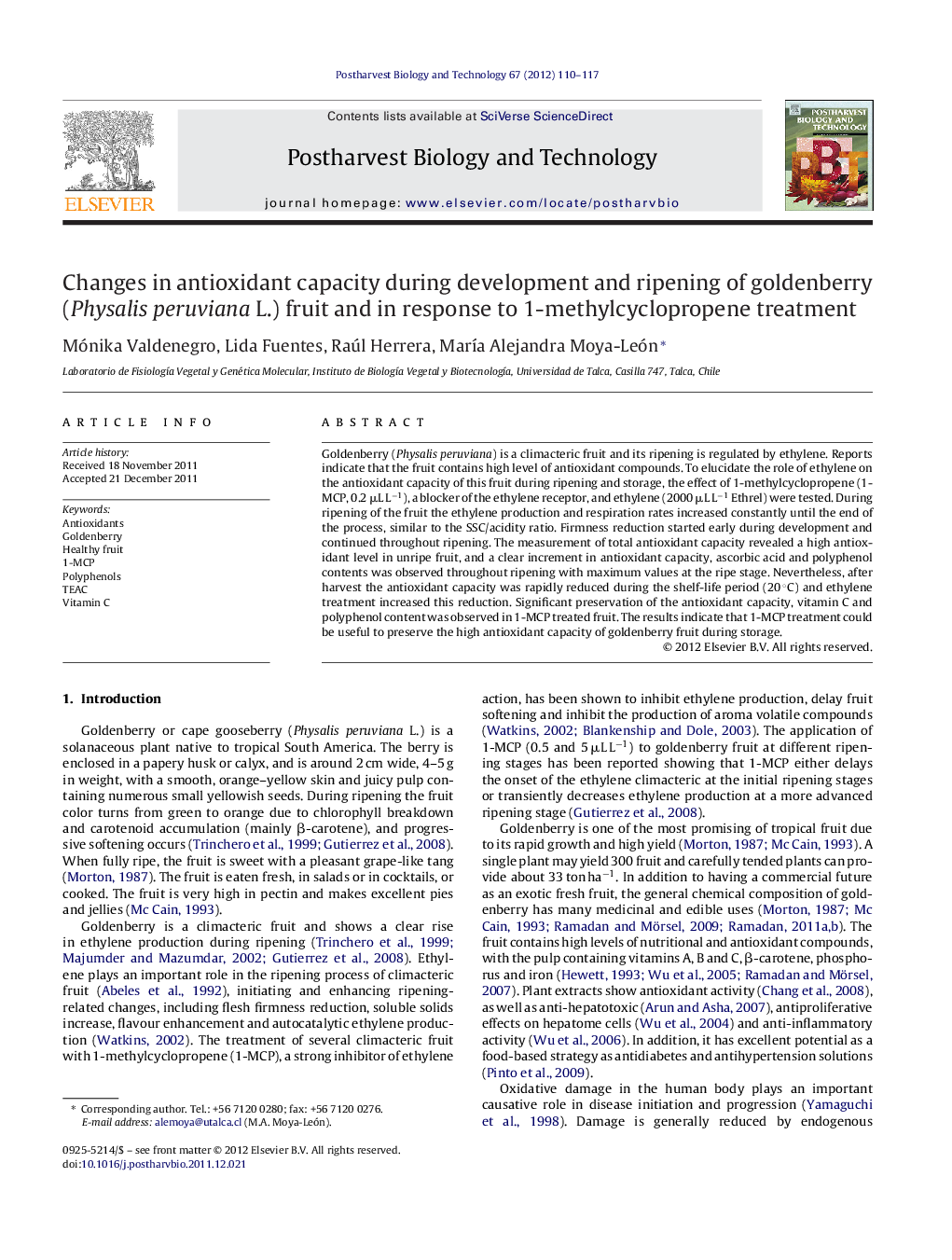| Article ID | Journal | Published Year | Pages | File Type |
|---|---|---|---|---|
| 4518758 | Postharvest Biology and Technology | 2012 | 8 Pages |
Goldenberry (Physalis peruviana) is a climacteric fruit and its ripening is regulated by ethylene. Reports indicate that the fruit contains high level of antioxidant compounds. To elucidate the role of ethylene on the antioxidant capacity of this fruit during ripening and storage, the effect of 1-methylcyclopropene (1-MCP, 0.2 μL L−1), a blocker of the ethylene receptor, and ethylene (2000 μL L−1 Ethrel) were tested. During ripening of the fruit the ethylene production and respiration rates increased constantly until the end of the process, similar to the SSC/acidity ratio. Firmness reduction started early during development and continued throughout ripening. The measurement of total antioxidant capacity revealed a high antioxidant level in unripe fruit, and a clear increment in antioxidant capacity, ascorbic acid and polyphenol contents was observed throughout ripening with maximum values at the ripe stage. Nevertheless, after harvest the antioxidant capacity was rapidly reduced during the shelf-life period (20 °C) and ethylene treatment increased this reduction. Significant preservation of the antioxidant capacity, vitamin C and polyphenol content was observed in 1-MCP treated fruit. The results indicate that 1-MCP treatment could be useful to preserve the high antioxidant capacity of goldenberry fruit during storage.
► Goldenberry (Physalis peruviana L.) is a promising climacteric fruit with high levels of antioxidants. ► The antioxidant capacity of the fruit increases during ripening. ► During shelf life, antioxidants are rapidly reduced and 1-MCP treatment avoids this reduction. ► 1-MCP treatment is useful to maintain the high antioxidant capacity of the fruit.
